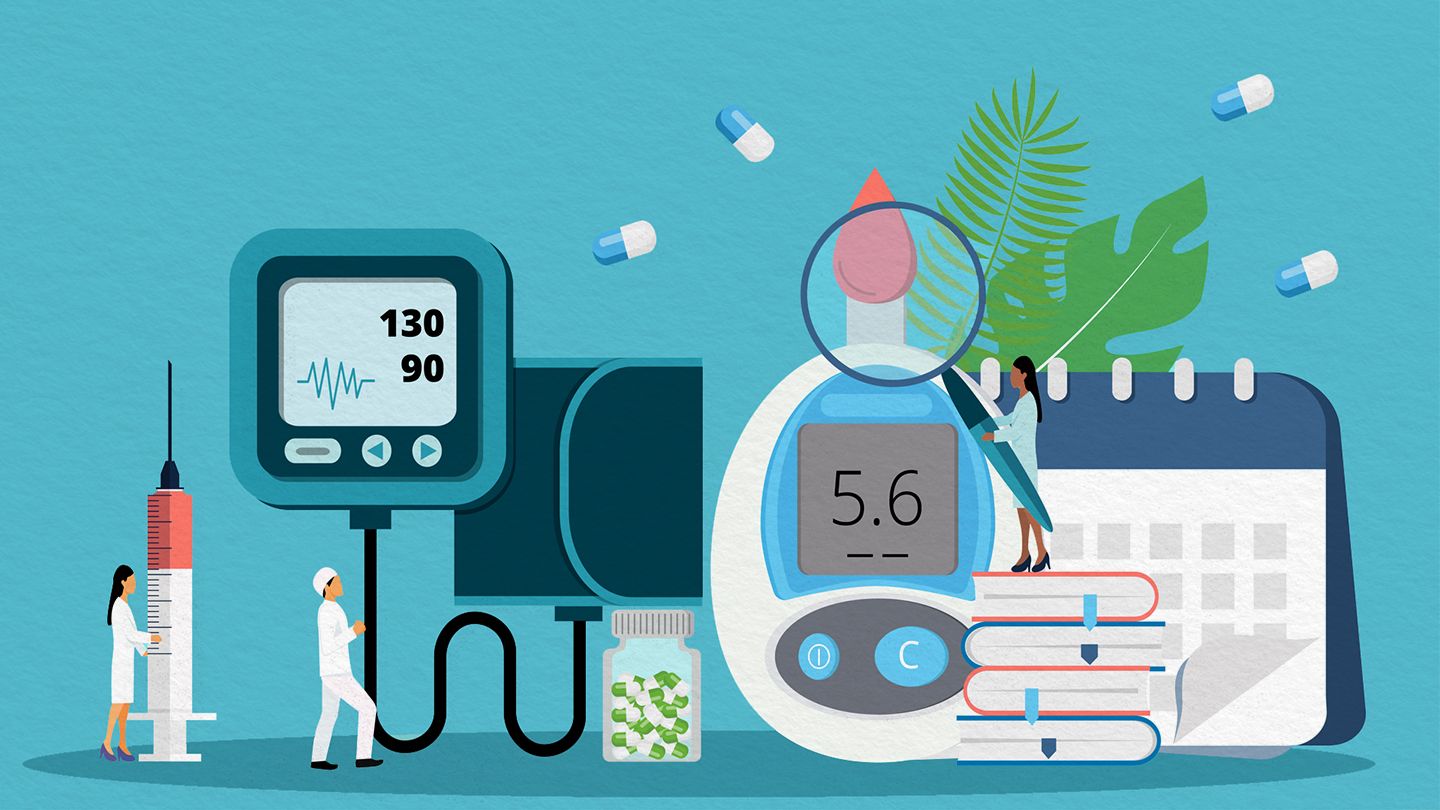Diabetes is a chronic disease that affects millions of people worldwide. It is a condition where the body is unable to properly process glucose, leading to high blood sugar levels. There are two main types of diabetes: type 1 and type 2. In this article, we will provide an overview of diabetes, its causes, symptoms, and treatments, and how to manage your health if you have been diagnosed with diabetes.
Understanding Diabetes:
Diabetes is a condition where the body cannot produce enough insulin or use insulin effectively. Insulin is a hormone produced by the pancreas that helps regulate blood sugar levels. When insulin is not working correctly, it can lead to high blood sugar levels, which can cause serious health problems.
Type 1 Diabetes:
Type 1 diabetes is an autoimmune disease that occurs when the body’s immune system attacks and destroys the insulin-producing cells in the pancreas. This type of diabetes usually develops in children and young adults and accounts for about 5% of all diabetes cases.
Diabetes Knowledge
Diabetes knowledge encompasses a broad range of topics, including understanding the different types of diabetes, the causes and symptoms of the condition, how it is diagnosed, and various treatment options. It also includes knowledge of the importance of lifestyle factors such as diet, exercise, and stress management, in managing the condition and preventing complications. Understanding how to monitor blood sugar levels, taking medication as prescribed, and recognizing the signs of both high and low blood sugar levels are also crucial aspects of diabetes knowledge. Additionally, being aware of the potential long-term complications of diabetes, such as kidney disease, nerve damage, and vision problems, is essential in maintaining good health and quality of life. Diabetes knowledge is essential for both those living with diabetes and their loved ones, as well as healthcare providers who treat and manage the condition.
Type 2 Diabetes:
Type 2 diabetes is the most common form of diabetes, accounting for around 90% of all diabetes cases. It is a metabolic disorder where the body either cannot produce enough insulin or becomes resistant to the insulin it produces. Type 2 diabetes is often associated with lifestyle factors such as poor diet, lack of exercise, and obesity.
Symptoms of Diabetes:
The symptoms of diabetes can vary depending on the type and severity of the condition. Some common symptoms of diabetes include:
Frequent urination
Excessive thirst
Increased hunger
Fatigue
Blurred vision
Slow healing of cuts and bruises
Tingling or numbness in the hands or feet
Unexplained weight loss
If you are experiencing any of these symptoms, it is important to see a healthcare provider as soon as possible for testing and diagnosis.
Diagnosis of Diabetes:
The diagnosis of diabetes is usually made by a healthcare provider through a blood test that measures the level of glucose in the blood. A fasting blood sugar test is the most common test used to diagnose diabetes. If the results show that your blood sugar level is higher than normal, you may need additional testing to confirm the diagnosis.
Treatment of Diabetes:
The treatment of diabetes depends on the type and severity of the condition. Type 1 diabetes is treated with insulin therapy, which involves injecting insulin into the body to regulate blood sugar levels. Type 2 diabetes is usually managed with a combination of lifestyle changes and medication.
Lifestyle changes include:
Eating a healthy diet that is low in sugar and carbohydrates
Exercising regularly
Maintaining a healthy weight
Quitting smoking
Limiting alcohol consumption
Medications used to treat diabetes include:
Metformin: A medication that helps the body use insulin more effectively
Sulfonylureas: Medications that stimulate the pancreas to produce more insulin
Insulin: Injected into the body to regulate blood sugar levels
Managing Your Health if You Have Diabetes:
If you have been diagnosed with diabetes, it is important to take an active role in managing your health. This includes:
Monitoring your blood sugar levels:
Regularly checking your blood sugar levels can help you identify patterns and make adjustments to your medication or lifestyle as needed.
Eating a healthy diet:
Eating a healthy diet that is low in sugar and carbohydrates can help regulate blood sugar levels and improve overall health.
Exercising regularly:
Regular exercise can help improve insulin sensitivity and lower blood sugar levels.
Taking medication as prescribed:
Taking medication as prescribed by your healthcare provider can help regulate blood sugar levels and prevent complications.
tress can cause blood sugar levels to rise, so it is important to manage stress through relaxation techniques.
Conclusion
In conclusion, diabetes is a chronic condition that affects millions of people worldwide. It is a complex disease that requires careful management to avoid serious complications. Understanding the basics of diabetes, its causes, symptoms, and treatments, is essential to managing the condition effectively. Lifestyle changes such as eating a healthy diet, regular exercise, and stress management, along with medication as prescribed by your healthcare provider, can help you manage your diabetes and prevent complications. By taking an active role in managing your health, you can improve your quality of life and reduce the risk of serious health problems associated with diabetes.
